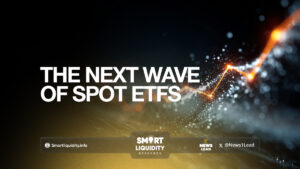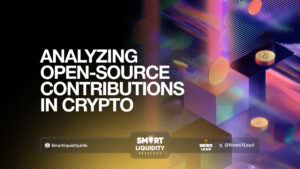Music NFTs: The Future of Music Ownership


The music industry has always been at the forefront of technological change. From vinyl records to cassette tapes, CDs to digital downloads, the way we consume music has constantly evolved. Now, a new revolution is brewing with the emergence of Non-Fungible Tokens (NFTs).
NFTs are unique digital assets authenticated on a blockchain, a secure and transparent digital ledger. Unlike traditional digital files that can be easily copied and distributed, each NFT is one-of-a-kind, creating a sense of scarcity and ownership. This technology is shaking things up in the music industry, offering exciting possibilities for both artists and fans.
Revolutionizing Music Ownership
For decades, music ownership has been a nebulous concept in the digital age. Streaming services provide access, but not true possession. NFTs turn this on its head by allowing artists to tokenize their work, essentially creating limited-edition digital collectibles. This could include unreleased demos, exclusive remixes, or even personalized messages from the artist.
For fans, owning an NFT represents more than just a song. It becomes a badge of fandom, a connection to a specific moment in the artist’s career, and potentially, an appreciating asset. Imagine owning the first-ever NFT of a song that becomes a global hit. The value of that NFT could skyrocket alongside the artist’s fame.
Deeper Fan Engagement
NFTs aren’t just about ownership; they’re a powerful tool for fostering deeper fan engagement. Artists can bundle exclusive content with NFTs, such as access to private listening parties, behind-the-scenes footage, or virtual meet-and-greets. This creates a tiered system of fandom, rewarding loyal supporters with unique experiences.
Imagine a band releasing a limited number of NFT concert tickets. These tickets wouldn’t just grant entry to the show, they could also unlock backstage access, limited edition merchandise, or even a chance to collaborate on a future song. This kind of interactive experience builds a stronger connection between artist and fan, fostering a sense of community and shared ownership.
Empowering Artists
The current music industry landscape often leaves artists struggling to earn a living from their work. Streaming services pay a pittance per play, and record labels take a significant cut of profits. NFTs offer a new way for artists to monetize their work directly. By selling NFTs themselves, artists can bypass intermediaries and capture a larger share of the revenue.
This empowers artists to experiment with their sound and release music on their own terms. They can connect directly with their fanbase, building a loyal following without relying on traditional gatekeepers. This democratization of the music industry could lead to a more diverse and vibrant musical landscape.
Challenges and Considerations
While NFTs hold immense potential, there are challenges to consider. The environmental impact of blockchain technology, on which NFTs rely, is a major concern. Additionally, the market for NFTs is still young and volatile. There’s a risk that the bubble could burst, leaving some fans with overvalued digital assets.
Furthermore, integrating NFTs into the existing music ecosystem requires careful consideration. Pricing models need to be balanced to ensure accessibility for fans while still rewarding artists. It’s important to avoid alienating fans who may not be comfortable with this new technology.
The Future of Music
Despite these challenges, NFTs have the potential to revolutionize the music industry. They offer a new way to own music, foster deeper fan engagement, and empower artists. As the technology matures and integrates seamlessly into the music experience, NFTs could become the norm, reshaping the way we interact with music forever.
The future of NFTs in music is still being written. However, one thing is certain: this innovative technology has the potential to create a more equitable and rewarding music industry for both artists and fans. It’s an exciting time to be a music lover, and with NFTs in the mix, the possibilities are truly endless.
Conclusion
The music industry is on the cusp of a new era. NFTs, with their potential to revolutionize ownership, fan engagement, and artist compensation, are at the forefront of this change. While challenges remain, the possibilities for a more sustainable and rewarding music ecosystem are truly exciting. As the technology matures and legal frameworks adapt, NFTs have the potential to rewrite the rules of the music industry, putting the power back in the hands of artists and fostering a deeper connection between creators and fans.




